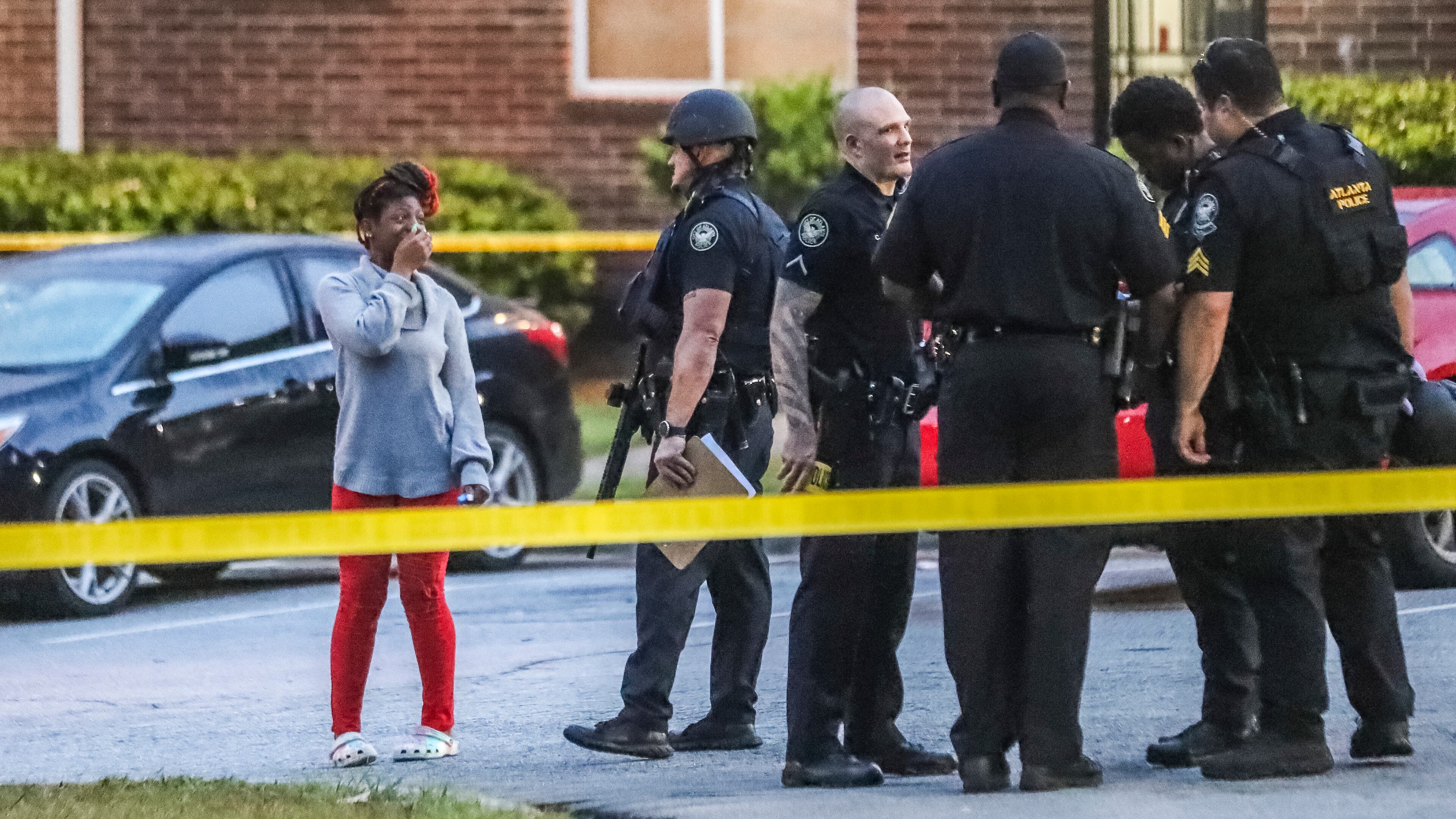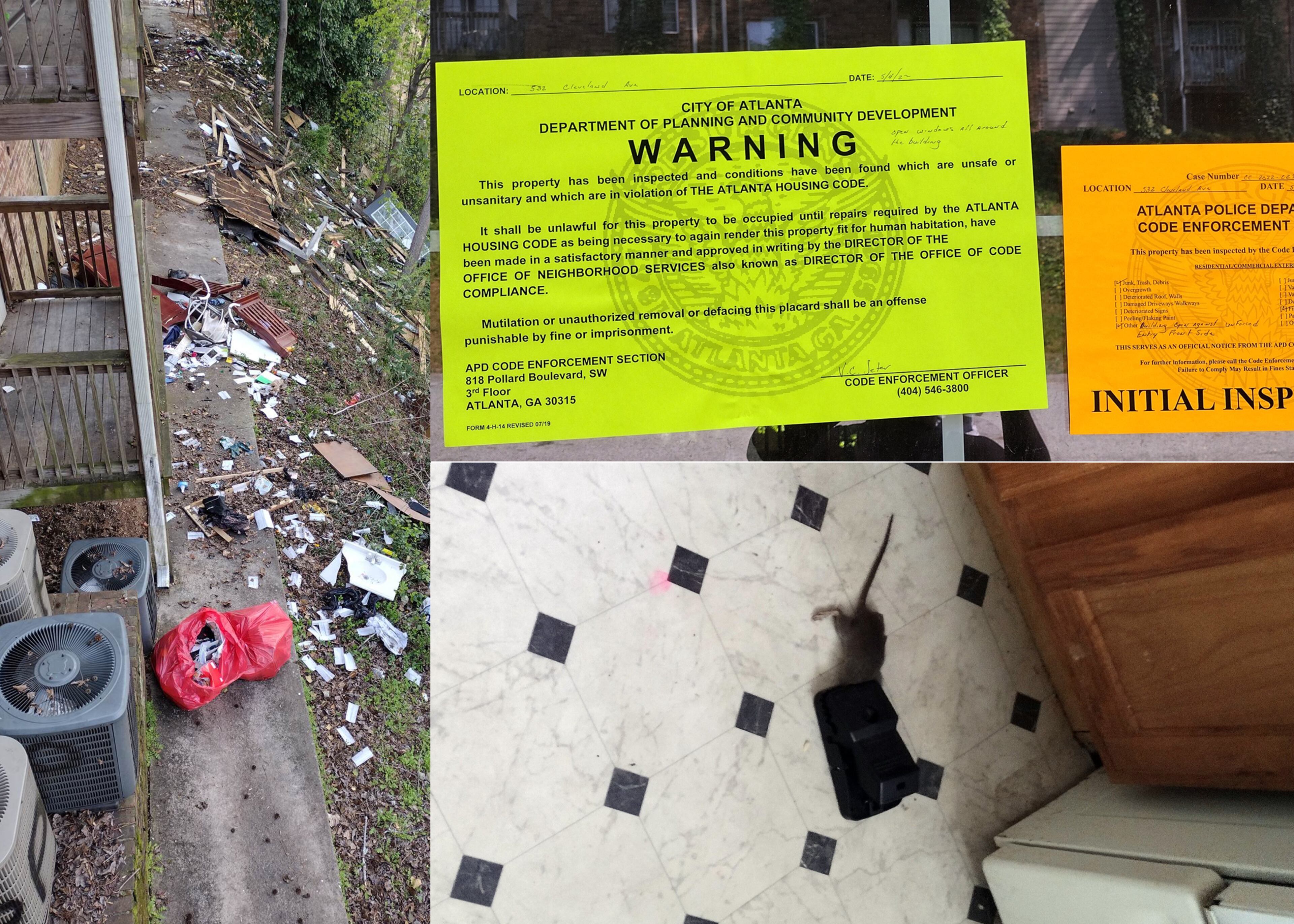Opinion: Profiting from poverty, the super-sized version

A visit this week to Pavilion Place brought back a generational sense of deja vu, in an urban decay sort of way.
I went to the apartment complex after reading the ongoing investigative series in The Atlanta Journal-Constitution called “Dangerous Dwellings,” which shined a light on violent and decrepit apartments, many of which are the bottom rungs of what one might call “The Dwelling-of-Last-Resort Industry.”
“Pavilion Place” conjures up a pleasant image of what this collection of low-slung brick apartment buildings in south Atlanta is not. In the series, my colleagues Alan Judd and Willoughby Mariano described an environment where shootings are common, as are rats crawling within apartment walls at night.
The reporters studied Pavilion because of the stark dichotomy in the lives of the tenants and the owner, who lives lavishly in Beverly Hills, California. It was a case study in magnificently profiting from poverty.
In 2000, I visited the complex, then known as Crescent Hills, because of a brewing scandal kicked off by another AJC investigation: Catholic Social Services was housing refugees there in conditions often as bad as from where they were escaping.
During a visit, I encountered the then-owner, a Taiwanese immigrant carving out a slice of the American Dream the old-fashioned way — through hard work and throwing himself into a career path most natural-born Americans want no part of.
Early on, the man and his family lived in a low-end motel he owned nearby, although they had moved on to a gated golf community. In 1993, he purchased the “deplorable” (the word used by the embarrassed archbishop) complex and built his wealth and a certain social respectability through his investment, where he toiled on-site most days.

A city inspector described a formula common at such low-end apartment complexes: The owners employ a minimalist approach to upkeep.
He protested the assertation with indignation.
“I don’t feel guilty; I’m not really a bad heart doing wrong things,” the owner told me at the time. “Here in the U.S., there’s a system — you get what you pay for.”
The controversy forced renovations funded by tax incentives. But when reporters returned 20-plus years later, the conditions appeared even worse.
In fact, the old set-up at Crescent Hills might be considered, by comparison, as the good old days, a more quaint time when at least the local owner was on site, available to hear complaints.
Today, the ownership of such complexes has been super-sized, anonymized and even outsourced.
My AJC colleagues tried to track down the owners, which was not an easy task. They found “at least three-fourths of the region’s most dangerous complexes belong to private equity firms and other remote investors, many of whom, in the absence of robust governmental oversight, prioritize earnings over their tenants’ well-being.”
Pavilion Place is part of the rental empire of about 30 buildings and complexes, seven in metro Atlanta, owned by Behzad Beroukhai, 52, of Beverly Hills.
Beroukhai bought Pavilion Place in 2015 and it has continually grown more dilapidated and dangerous as city and state officials have tried, with little success, to get the owner to do much about it. Crime stats there since 2015 read like a ledger from hell: Seven homicides, 14 people wounded, 22 attempted or completed suicides, 69 aggravated assaults, 31 car thefts, 50 burglaries, 4 rapes, 8 sex crimes and 17 (reported) armed robberies.
Meanwhile, Beroukhai employs a pool man, gardener, housekeeper and a tutor for his preschool-age children. Household expenses approach $40,000 a month.
Beroukhai told my colleagues “the property is 100% livable. Whatever I have to do, I just do it. Better to spend the money and get the stuff fixed.”

A resident of the complex, Jarrell White, smiled this week when I told him that contention.
“This is the first apartment I lived in where they literally have no maintenance man,” said White. “I mean none. Whatever breaks, it just breaks.”
White pays $900 a month and will leave when his lease is up. He spoke of the blueprint for such ownership: “They chisel off what they can get.”
Beroukhai may even be a relative small timer when it comes to chipping away profits. The AJC investigation discovered that private equity firms have been routinely gobbling up such complexes and flipping them a few years later, selling them to other such firms at great profit. One such New York-based outfit, Olive Tree Holdings, turned $184.5 million into $321 million in just four years.
The idea is that cheap money (at least until now), rising land prices and desperate renters are easy pickings for big, anonymous money.
Next up on the AJC’s “Dangerous Dwellings” series is a Sunday story explaining how state laws makes Georgia one of the better places to get away with this sort of activity.
Is anyone surprised?


